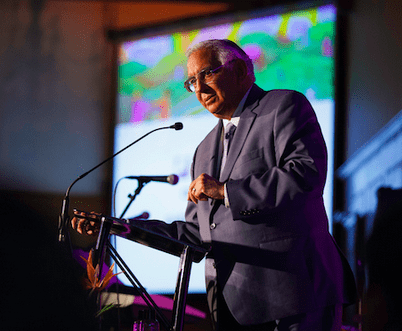 Sometimes we can get tied up into a conversation that is peripheral and relatively unimportant, and the emphasis given to that theme can lead us to ignore what is far more important. Like focusing on how clean or unclean the glove compartment is when we ought to be concentrating on driving.
Sometimes we can get tied up into a conversation that is peripheral and relatively unimportant, and the emphasis given to that theme can lead us to ignore what is far more important. Like focusing on how clean or unclean the glove compartment is when we ought to be concentrating on driving.
I speak of the Holy Spirit in the Christian life. Plenty of Christians are functional atheists when it comes to the Third Person of the Trinity and they are functional atheists either because the Spirit spooks them out or because they operate without any conscious dependence or invocation of the Spirit.
Theology ought to be constructed on the basis of Scripture, or what is often called prima scriptura. Jesus depended on and was empowered by the Holy Spirit (as Gerry Hawthorne sketched in The Presence and the Power, which is one of the best books ever written on the Holy Spirit). Scripture shows this. The apostles (check out Paul especially here) and the earliest narrative of the church (Acts of the Apostles) are pneuma-centric. The Spirit mediates God’s grace to humans and empowers humans to live as God wants.
Hence, this observation from Justo Gonzalez’s The Story Luke Tells: Mark mentions the Spirit six times, Matthew twelve times, and Luke sixteen times — but Luke explodes pneumatologically in Acts with more than sixty references. So Luke-Acts is the Spirit’s Story of the early church.
A good starter: Luke 1:15, 35, 41-42, 67; 2:25-27:
Luke 1:15 for he will be great in the sight of the Lord. He is never to take wine or other fermented drink, and he will be filled with the Holy Spirit even before he is born.
Luke 1:35 The angel answered, “The Holy Spirit will come on you, and the power of the Most High will overshadow you. So the holy one to be born will be called the Son of God.
Luke 1:41 When Elizabeth heard Mary’s greeting, the baby leaped in her womb, and Elizabeth was filled with the Holy Spirit. 42 In a loud voice she exclaimed: “Blessed are you among women, and blessed is the child you will bear!
Luke 1:67 His father Zechariah was filled with the Holy Spirit and prophesied:
Luke 2:25 Now there was a man in Jerusalem called Simeon, who was righteous and devout. He was waiting for the consolation of Israel, and the Holy Spirit was on him. 26 It had been revealed to him by the Holy Spirit that he would not die before he had seen the Lord’s Messiah. 27 Moved by the Spirit, he went into the temple courts. When the parents brought in the child Jesus to do for him what the custom of the Law required,
We cannot then be surprised by the Spirit and Jesus: Luke 4:14: “Jesus returned to Galilee in the power of the Spirit.” And then also 4:18: “The Spirit of the Lord is on me, because he has anointed me to proclaim good news to the poor. He has sent me to proclaim freedom for the prisoners and recovery of sight for the blind, to set the oppressed free…” — thus, Jesus’ ministry is Spirit-empowered because Jesus is Spirit-anointed.
What terms are used of the Spirit in Luke?
Filled with the Spirit: Acts 2:4; 4:8; 6:3, 5; 7:55; 9:17; 11:24; 13:9, 52.
Poured out and falling upon or on: cf. Luke 4:18; Acts 2:17, 18, 33; 10:45 — see also Luke 3:16.
Luke’s Gospel and Acts open with Spirit-pouring-out scenes. Esp for Acts, and Gonzalez joins the large number who think the Acts is the Acts of the Spirit. The protagonist of Acts is the Spirit. E.g, Acts 1:1-2; Acts 1:8.
Pentecost, to be practiced well, means the expansion of the people of God to include all — by the power of the Spirit this can happen; without the Spirit this cannot happen for the Spirit’s task is to transcend our inabilities (ethnic restrictiveness) and transform our abilities (our desire to go where we know God wants to go).
I use the term “institutional” negatively especially for Un-Spirit concepts, organizations, and churches. The church is only an institution when it is disengaged from the Spirit, either by commission or omission.











